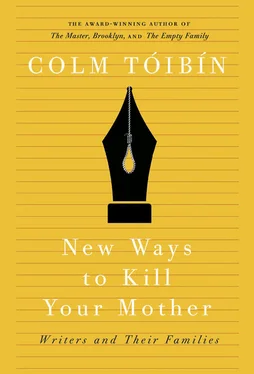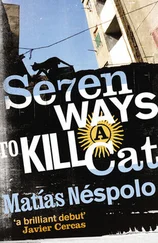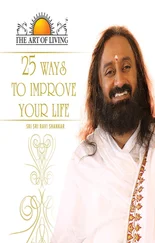In his book Letters to my Daughter , published in 1932, Synge’s brother Samuel, the missionary, wrote:
There is little use in trying to say what if our father had lived might have happened different to what did happen. But I think two things are fairly clear. One is that as your Uncle John grew up and met questions that he did not know how to answer, a father’s word of advice and instruction would have made a very great difference to him. The other thing is that probably our father would have arranged something for your Uncle John to do besides his favourite reading, something that would not have been too much for him but would have brought in some remuneration at an earlier date than his writings did.
This was to consign Synge’s mother Kathleen to dust, to suggest a sort of powerlessness for her. She was, in fact, a very powerful person. Synge’s mother was born Kathleen Traill in 1838. Her father was a clergyman of whom Edward Stephens wrote: ‘He spent his life, as he put it, waging war against popery in its thousand forms of wickedness, which did not always endear him to his ecclesiastical superiors.’ Finally he became rector of Schull in County Cork, where he died in 1847 from a fever caught from the people among whom he worked. His widow, who had been brought up in Drumboe Castle in County Donegal, moved to Orwell Park in the southern suburbs of Dublin. From here in 1856, her daughter married John Hatch Synge, the playwright’s father. They lived in Hatch Street in the early years of their marriage, later moving to Rathfarnham, where John Millington Synge was born. Later, after her husband’s death, Kathleen Synge moved her family to Orwell Park in Rathgar.
Synge’s paternal grandfather and his Uncle Francis, who had bought back some of the family estates in County Wicklow, were members of the Plymouth Brethren. Mrs Synge’s father had held strong evangelical views, which his daughter also shared. She brought up her children according to strong religious principles, and her social life, such as it was, seemed to include only people who were of a like mind and background. Edward Stephens wrote:
Mrs Synge conducted her household by a rule as strict as that of a religious order and supposed that her children would acquiesce without question. She was very well versed in the doctrine to which she adhered and she could support every tenet by citing scriptural authority. She believed the whole Bible to be inspired and its meaning to be clear to anyone who read with an open mind and faith in the Holy Ghost.
In an autobiographical essay composed in his mid-twenties, Synge wrote:
I was painfully timid, and while still young the idea of Hell took a fearful hold on me. One night I thought I was irretrievably damned and cried myself to sleep in vain yet terrified efforts to form a conception of eternal pain. In the morning I renewed my lamentations and my mother was sent for. She comforted me with the assurance that the Holy Ghost was convicting me of sin and thus preparing me for ultimate salvation. This was a new idea and I rather approved.
Between the ages of four and twenty-one Synge took part in his family’s annual move to Greystones in County Wicklow, where his mother had friends and associates among the evangelical community. These ‘summer visits to the seaside’, Synge remembered, ‘were delightful’. His mother had the policy on holidays as well as during the rest of the year of gathering together as many members of her family as were available. When they were not available in large numbers, she invited friends, usually women of the missionary persuasion, to share the family sojourn in Wicklow, which often lasted for three months.
Nicholas Grene writes about Synge’s relationship to his family: ‘There is nothing very unusual about a writer or artist from a conventional middle-class background diverging from his family’s political, social and religious views. What is striking about Synge’s case is that he maintained such close relations with the family in spite of his dissidence.’ However, while he spent most of his life in Ireland under his mother’s roof, sharing even her holidays, he seems to have been seldom alone with her and this might have helped to maintain close relations. Mrs Synge’s house in Orwell Park had an entrance in the dividing wall to her mother’s adjoining house, where her daughter Annie, her husband and their children, including the young Edward Stephens, lived, as did Aunt Jane, Mr Synge’s sister. On 13 April 1890, after Mrs Synge’s mother’s death, when the Stephens family decided to leave Rathgar, Mrs Synge wrote to her son about her prayers to the Lord: ‘I am… asking Him to find us two houses together as we are here. He can do all things, so if he pleases to do that for me it is quite easy for Him.’
The Lord came to her aid. He was assisted by Mr Talbot Coall, the estate agent; they combined to find two adjoining houses at Crosthwaite Park in Kingstown, now Dun Laoghaire. Thus the extended family remained together and Mrs Synge could continue to instruct her grandchildren in the ways of righteousness, as she had her children. While four of her five children carried her instruction faithfully into adulthood, it made her sad that John, the youngest, did not. In the letter quoted above, she also wrote: ‘Dear Sam is always a comfort when I see him. My poor Johnnie is not a comfort yet.’ Soon after the move she wrote: ‘John — poor boy. I am so sorry for him, he looks unhappy. He has not found the Saviour yet and until he does, how can he be happy?’
Her son, who had not found the Saviour, had found much comfort instead in the natural sciences and in his own imagination. In his autobiographical sketch, he wrote about an awakening that changed everything for him:
When I was about fourteen I obtained a book of Darwin’s. It opened in my hands at a passage where he asks how can we explain the similarity between a man’s hand and a bird’s or a bat’s wings except by evolution. I flung the book aside and rushed out into the open air — it was summer and we were in the country — the sky seemed to have lost its blue and the grass its green. I lay down and writhed in an agony of doubt… Incest and parricide were but a consequence of the idea that possessed me… Soon afterwards I turned my attention to works of Christian evidence, reading them at first with pleasure, soon with doubt, and at last in some cases with derision.
Synge was not naturally social. Because of ill health he had been educated at home for much of the time. Thus, when he went to Trinity College in Dublin, he took no great part in academic or student life. His reading had been intense and sporadic. His study of science and archaeology had been done for their own sake. His most notable attribute was his polite distance from those around him. By seventeen he did not seem to have shared his doubts and derisions with his mother, who wrote:
This is Johnnie’s birthday. I can hardly fancy he is seventeen. I have been looking back to the time he was born. I was so dreadfully delicate and he, poor child[,] was the same… I see no spiritual life in my poor Johnnie; there may be some but it is not visible to my eyes. He is very reserved and shut up on the subject and if I say anything to him he never answers me, so I don’t know in the least his state of mind — it is a trying state, very trying. I long so to be able to see behind that close reserve, but I can only wait and pray and hope…
But it was hopeless. He could not be spoken to about matters either spiritual or temporal. Within a year, she was writing again: ‘He does not know how to take care of his clothes and won’t take advice; he has much to learn, poor boy; he is very headstrong.’ That summer she sent for a clergyman, who discussed religion with her son in private, leading her son to the view that he would have to come clean about his unbelief. The Sunday before Christmas, his mother wrote in her diary: ‘Fine, damp, mild day — church very hot — I felt overpowered. Johnnie would not come — very sad.’ And then on Christmas Day: ‘Very peaceful, happy day; went to church — my own sorrow Johnnie — he did not come.’
Читать дальше












